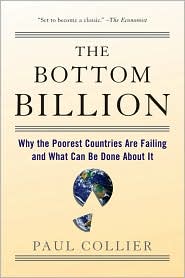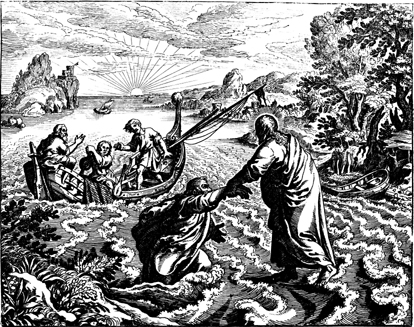Over the past month or so, I have been meditating on the theology and principles that make up a kingdom approach to discipleship. It is the church’s primary job to deliver a kingdom quality of life, a truly happy and heavenly quality of life, to those who have put their faith in Jesus Christ. Unfortunately, the path into the kingdom is rarely, if ever, mapped out in the church’s ministry program. As I wrote earlier, Dallas Willard says, “I know of no current denomination or local congregation that has a concrete plan and practice for teaching people to ‘do all that I commanded you’”. In other words, Willard knows of no church that has a discipleship program that leads people into the kingdom. This is a bold claim but it has been my experience as well.
The quality of life which Jesus offers, as those who have tasted it know, is significantly distinct from the quality of life one can attain apart from the Gospel. When the power of the Kingdom comes upon us we have a significantly higher quality of life in terms of righteousness, peace and joy. I am not saying that the believer abides in this place continually or even consistently, but as one learns and grows, we can learn how to pull ourselves out of our forgetfulness and revive the presence and power of God in our lives.
What follows is a very brief outline of, first, a kingdom theology and, subsequently, a kingdom approach to discipleship. My intension, though I rarely am able to follow through on my original intentions, is to write multiple posts on each postulate, hypothesis, and principle using this post as a basic outline. At some point, I will write a post with the remainder of the outline of the principles that give the believer a more complete understanding of the teachings of Jesus. So, in fact, what I hope to accomplish is a somewhat complete mapping of a discipleship process. These principles have been of great spiritual value to me and to others who I have had the privilege of walking with as friends and co-workers in the kingdom.
I will outline this path using terminology that works for me. The terminology may or may not be best, but, certainly, that is not the point. It is our practices that make any approach to the faith actually work especially when we define “working” as bringing to people the promised kingdom quality of life. So here we go:
Postulate 1: Jesus is the Christ
In the Old Testament, God promises His failing people that He will send a Christ who will usher in a new covenant. This new covenant will not be like the old covenant which they could not follow. Instead, this new covenant will empower the people of God to obey his ways. The believer will be given a new heart, a tender heart. No longer will one person say to another “Do you know the Lord?” for every one will have an intimate and conscious awareness of God. This experiential knowledge of God will enable the people of God to obey God and, ultimately, this new covenant will enable the people of God to become the morally beautiful people that God has envisioned for His people. They will become a light on a hill and a city that cannot be hidden. Faith for the fulfillment of these promises, in our lives and in our churches, is what it means to believe that Jesus is the Christ.
Postulate 2: Since Jesus is the Christ, by definition, the kingdom of heaven is within our reach.
The kingdom of God or the kingdom of heaven is best described as a truly happy and heavenly quality of life. This kingdom quality of life is the quality of life available in heaven. This heavenly quality of life is available today through faith in Jesus Christ. The kingdom of God is righteousness, peace and joy in the Holy Spirit. This quality of life is available because the best part of heaven, God Himself, is available to us today. The kingdom is the answer to every evil that plagues humanity. The human plight, the dread of human existence, the existential angst of human experience, finds its resolution not in our death, but in the death of Jesus on our behalf. We have access to a significantly superior quality of life because Jesus, the Christ, has died and is alive, and His kingdom is immediately present to those who repent and believe this Good News.
Hypothesis 1: We enter the kingdom quality of life by putting into practice the teachings of Jesus.
This is the basis of all discipleship. Jesus’ call to His disciple in the bible and to His disciples today is “follow me”. To believe that Jesus is the Christ and that we are to enter the kingdom through faith in Jesus means that we are to follow Jesus and he will lead us into this kingdom quality of life. All the centuries of confusion regarding faith and works is solved when we begin with a theology of the kingdom and the promise of an altogether superior quality of life. Faith is to follow Jesus into the kingdom. Because the kingdom is the solution to our present living, to have faith in Jesus is to believe that through the grace of God we can behave and live differently today. To experience victory in life, we must follow Jesus’ program and teachings. This truly happy and heavenly quality of life is founded entirely on faith in Jesus’ teachings and His modeling of who God, the Father, is. Therefore, as we will see, following Jesus begins and is immersed in an understanding of the love and grace of God. We learn to immerse every aspect of our lives with this love as we learn to follow Jesus into a life of infinite forgiveness, fearless faith, and unconditionally love.
Hypothesis 2: The source of power which enables the believe to walk in the kingdom quality of life, that is in righteousness, peace and joy in the Holy Spirit, is conscious contact with God.
The bible teaches us that the joy of the lord is our strength. We are morally strong when we are joyful. We can only have a morally powerful joy when we are in living from the presence of God. The power to be meek when we are tempted to be angry is the real knowledge of God and ourselves as His child. We can trust Him because our affections and emotions have been transformed through our life in the presence of God. No other path gives us the moral strength to be generous and loving and gentle and calm. There is only one thing needful and that is a close walk with God.
Hypothesis 3: Conscious contact with God is maintained through an orientation of absolute surrender with respect to the teachings of Jesus. This is the life of repentance.
The path to conscious contact with God is repentance. The key to maintaining the witness of the Spirit that we are children and therefore heirs is repentance from the heart. This absolute surrender is not merely an orientation in prayer but a commitment to follow through with obedience. This life of repentance requires a life of rigorous honesty and the cultivation of a tender heart. The life requires the work of the Holy Spirit, humility before the Word of God, and intimate, authentic community with other followers of this path of discipleship. Jesus taught us that the kingdom of God suffers violence and violent men take it by force. This zeal requires a life of rigorous honesty and confession. This life of rigorous honesty is the narrow road that, in reality, few are willing to follow in order to experience the kingdom life in this life.
Principle 1: The first teaching of Jesus, a teaching which must remain an element of every Christian practice, is that without the provision of God’s power and grace we are spiritually poor. All the resources we need to attain to this kingdom quality of life are a gift of His grace. This grace is needed moment by moment if we to experience righteousness, peace and joy in the Holy Spirit.
Jesus taught and lived and told parables about the grace of a loving Father. Jesus began His teaching life by saying, “Blessed are the spiritually bankrupt, for theirs is the kingdom of heaven”. We are all without the ability to take one step toward God apart from His provision. He pardons, and He enables. All the theology of Paul is to be understood as an exposition of the teachings of Jesus. Jesus taught us through His words, His religious symbols, His life and ultimately in His death and resurrection that we need God’s grace and loving power toward us who believe. Baptism, the Lord’s supper, the parables, and the life and death of Jesus are all elements of the story of the Father’s provision for His children. Of all the teachings of Jesus, grace must remain front and center. Without being immersed in grace, we will fail to live a beautiful life. Of all the practices we need to learn receiving forgiveness and grace is first and foremost. As disciples, receiving grace from God needs to be a well worn path.
This kingdom life is attainable and God intends for us to understand how to follow Jesus into a truly happy and heavenly quality of life. Principles and theology help us to develop a daily cycle and an approach to life and prayer that we can learn and live.









